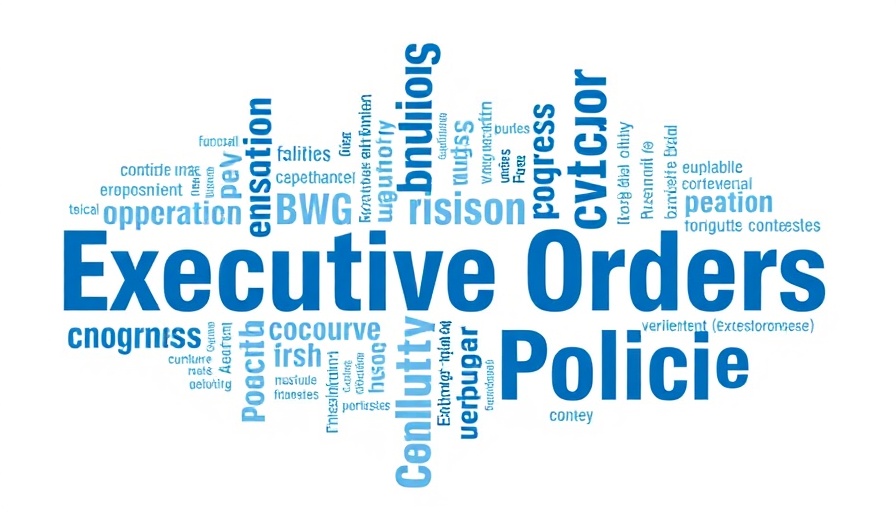
Understanding the Impact of Recent Executive Orders on Your Workplace
The flurry of executive orders recently introduced under the current administration has opened a contentious debate regarding workplace policies across the United States. Small business owners need to grasp these changes to navigate the evolving landscape effectively. The two most pivotal orders—Ending Illegal Discrimination and Restoring Merit-Based Opportunity (EO 14173) and Defending Women from Gender Ideology Extremism (EO 14167)—reshape how companies approach diversity, equity, and inclusion (DEI) initiatives as well as gender identity policies.
Executive Order 14173: Reevaluating DEI Policies in the Workplace
This order directly affects federal workers and contractors but also sets a precedent that encourages all businesses, including small enterprises, to reexamine their DEI frameworks. Large corporations are already responding; companies such as Amazon, Google, and Ford have begun reassessing or abandoning their DEI policies under the scrutiny imposed by these new mandates. This might indicate a need for smaller businesses to follow suit and avoid potential legal repercussions.
The fundamental change here is a shift towards a merit-based system that prioritizes individual performance over group identity factors such as race or sex in hiring and promotions. As a result, businesses should evaluate their existing DEI initiatives to ensure compliance with the new directives. Failure to do so could expose firms to significant legal risks, especially amid the Supreme Court’s ongoing cases surrounding reverse discrimination.
Understanding Executive Order 14167: Gender and Identifying Policy Reforms
EO 14167 emphasizes the binary classification of sex, mandating that only male or female designations be acknowledged in federal and possibly private sectors. Although the direct implications for small businesses are not clear-cut, firms with employees needing to engage with U.S. government identification documentation must ensure that employee records align with these new definitions.
Given these changes, small businesses should remain proactive. Revisions to employee handbooks may be required, and it is essential to stay abreast of forthcoming guidance from authorities, which may provide further clarification on implementing these definitions in practice.
Potential Opportunities in the Wake of Workforce Changes
EO 14158, which establishes the Department of Government Efficiency, directs the termination of around 200,000 government positions, significantly affecting the job market. For small businesses, this presents an opportunity to tap into a rich pool of talent transferred from federal jobs. Engaging with these skilled workers could bolster small enterprises eager to access diverse talents that could enhance operational efficiency.
Navigating the Legal Landscape: Best Practices
With the evolving nature of regulations surrounding DEI and gender identity, small businesses must adopt specific best practices. Consulting with employment law attorneys to review current hiring practices and ensure adherence to anti-discrimination laws is crucial. Employers should also focus on creating an inclusive workplace environment that ensures psychological safety for all employees. This includes open lines of communication regarding workplace policies and a commitment to fairness.
Future Prospects: How Businesses Can Adapt
As these executive orders signal a potential rollback on DEI initiatives, the future may offer a bifurcated path for small businesses. Some may choose to double down on DEI efforts, while others may delay or scale back their initiatives due to legal apprehensions. However, it remains vital that businesses communicate their policies effectively, both internally and externally, to mitigate reputational risks and align stakeholder expectations.
Take Action: Consider Expert Guidance Now
Preparing for changes resulting from executive orders can shield your business from compliance issues. By proactively taking stock of your workplace policies and engaging legal counsel, you're ensuring that your business remains adaptable in the face of ongoing change.
In the words of Jack Welch, "Change before you have to." Embrace these shifts as opportunities for growth, ensuring that your business continues to thrive amidst evolving frameworks. For further insights into navigating these executive changes effectively, consider exploring additional resources tailored for small business owners.
 Add Row
Add Row  Add
Add 




 Add Row
Add Row  Add
Add 

Write A Comment